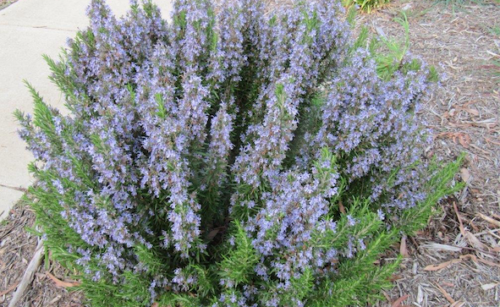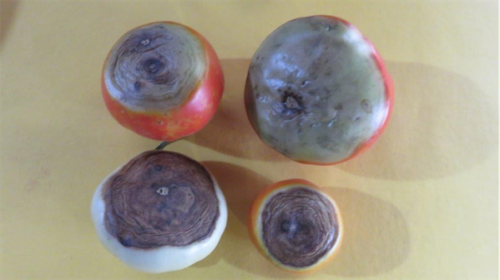
There was rain, hail, dust, smoke and fire… it’s been a challenging summer in the garden, says CEDRIC BRYANT.
WHAT a battle we gardeners are experiencing this summer.

There was the rain, ranging from little or none to torrential downpours, the fires, then last week’s massive hailstorm that stripped trees and brought down, almost exclusively, eucalypts.
Generally shrubs bounce back after, dare I say it, a form of pruning.
The water table is so low that, even with the advantage of drip irrigation, it’s taking a long time to reach the root zone.
In December I installed an extra 4000-litre rainwater tank; obviously it’s no use until rain arrives, although I did suggest to the installers that part of the guarantee besides the actual tank and pump was that they guaranteed 25 millimetres of rain within a day of installation. They didn’t go along with that!
WHILE I admit to having had a few losses in the garden, the really tough plants survive with a minimum of water.
For example Escallonia bifida, an evergreen native to Brazil and Uruguay is in full flower in our garden.
Reaching up to four metres high with a 2.5-metre spread, it can be grown as an individual shrub or it makes an ideal hedge. It is an accredited RHS Award of Garden Merit plant.
Equally Escallonia “Red Knight” is a hardy, drought tolerant plant. Smaller at 1.5m x 1.5m, its cerise flowers appear from late spring to autumn and it makes a perfect pot specimen. Although the 41C-plus heat did (as for most plants) knock the flowers about.
THE botanists are at it again renaming plants. Now Rosemary has been renamed. But the Royal Horticultural Society has accepted that this is actually in the Salvia family to be now known as Saliva rosmarinus. These name changes may not be well received, but we cannot ignore the scientists with their modern DNA testing.

BLOSSOM end rot, which shows up as a large blob on the bottom of the fruit even when green, seems to be a problem this year for tomato, capsicum and even potato growers.
It isn’t a disease but a soil problem caused by a calcium deficiency, which can be corrected by the addition of gypsum or dolomite to the soil, preferably before planting.
The problem is what to do if your tomatoes are showing the problem after planting?
Adding these soil conditioners in powder form takes a long time to absorb into the soil. The liquid alternatives are registered organic soil improvers such as Eco-flo gypsum, Eco-flo lime or Eco-flo dolomite for better plant health and fruit production.
500ml of Eco-flo dolomite is equivalent to 20 kilograms of powdered dolomite. Avoid using chemical/artificial fertilisers, especially those with high nitrogen content that promotes excessive green growth at the expense of flowers.
WITH 500,000 members, the UK’s Royal Horticultural Society is the world’s largest gardening organisation. It has four magnificent gardens with a fifth due to open this year and each has an extensive garden centre.
This year, the society will no longer sell glyphosate-based weedkiller products in its plant centres. It will offer alternate organic formulations to glyphosate (Round-up). Readily available here is the organic weed killer Slasher product made by Eco Organic Crop Protectants.
Who can be trusted?
In a world of spin and confusion, there’s never been a more important time to support independent journalism in Canberra.
If you trust our work online and want to enforce the power of independent voices, I invite you to make a small contribution.
Every dollar of support is invested back into our journalism to help keep citynews.com.au strong and free.
Thank you,
Ian Meikle, editor




Leave a Reply